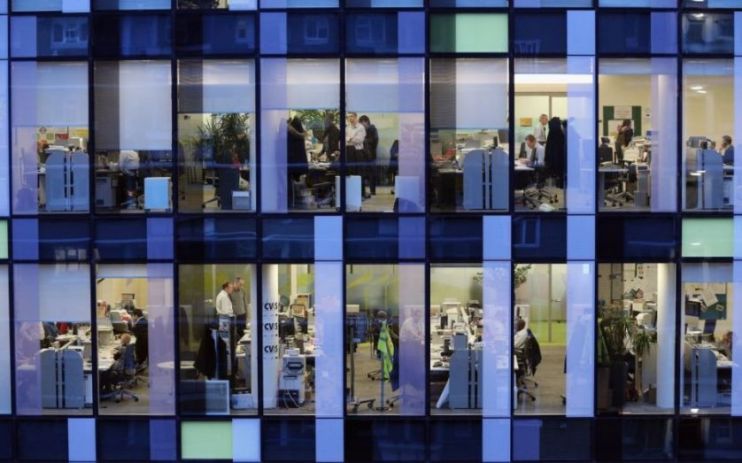The Notebook: Tim Rodber on the office of the future, English rugby’s warm-up campaign and the biggest workplace trend

Tim Rodber is CEO of The Instant Group, a workspace consultancy, and played rugby union for Northampton, England and the Lions
The future office exists, but it’s had a makeover
We are in the midst of a workplace revolution and the traditional world of office landlords and tenants operating in an almost feudal relationship is coming to an end.
An old school property landlord once told me that there is a reason why the word landlord includes the word ‘lord’ and the word tenant includes ‘ant’. That sums up the master-servant relationship which continued for so long in the traditional office property world, with those landlords boasting about tenants being ‘on the hook’ of a 25-year lease.
That world is now being swept away – it was dying before the pandemic and the revolution has been accelerated now. Flexible offices, whereby companies have the freedom to sign leases as short as a few weeks up to five years, with all costs included, are transforming London work.
Big companies that want the flexibility to expand and contract their office space love the optionality of flexible offices and start-ups that don’t want to over-commit themselves love these workplaces for the community feel because occupation is high.
Flex is more expensive to buy on a per-desk basis, but in real terms it is cheaper. You might pay £700 for a desk in a flexible office – comparatively on a ten-year lease that might work out at £400 but there is no one at it for the vast majority of the week.
My 16-year-old daughter will be entering the workplace in the next few years. The places she works in and how she works will be very different from the traditional long-lease property that the City has embraced over the last 50 years.
The good news is that the big owners are realising this too – British Land, Landsec and GPE are among the listed owners who are now offering excellent flexible office options. They are becoming much more customer focused in recognition of the changes now driving the market.
Bouncing back
At The Instant Group – where for over a decade we have been acting as the Booking.com for the office world, every year finding workspaces for 12,000-plus businesses among space managed by5,000 owners and operators of real estate – we can detect the biggest workplace trends immediately.
In the first six months of 2023, demand in London for flexible offices – as opposed to space signed on a long lease from a landlord for up to 15 years – has not just improved but has seen the strongest post-Covid recovery in any major property market, up 40 per cent compared with the first half of 2022.
On English rugby’s warm-up campaign
I was recently asked my views on the woes afflicting English rugby’s World Cup warm-up campaign and my take on this is quite clear. In business, the role of the CEO is to hire the best people and then put the necessary strategy in place, which allows them to use their strengths and execute.
As has been the case in English rugby for some time, the senior leadership team appear to be managing on a very tactical basis with an over-exacting degree of preparation removing any sense of self-determination or spontaneity from the players.
The coaching team set out the strategy and the senior players take full control of execution on the pitch – in short, they need to play what they see in front of them, NOT what was set out in the pre-match briefing.
Office space has its retail moment
The office market is clearly having its “retail moment” – the dilemma facing landlords bear many similarities to that which retailers experienced more than 20 years ago when they had to face up to the challenge of the e-commerce revolution.
It has taken much of those two decades for retailers to not only recognise but adapt their business models with many falling by the wayside during that time.
In many ways the office market challenge is even more profound. Retail has adapted to the challenge of e-commerce by providing richer experiences in high street environments and knitting together the physical and the digital.
The office market not only has to create an effective strategy in both areas but also productise itself by creating a transparent, easily purchasable set of products with a defined customer experience. Not an easy challenge but one we are enjoying taking on.
